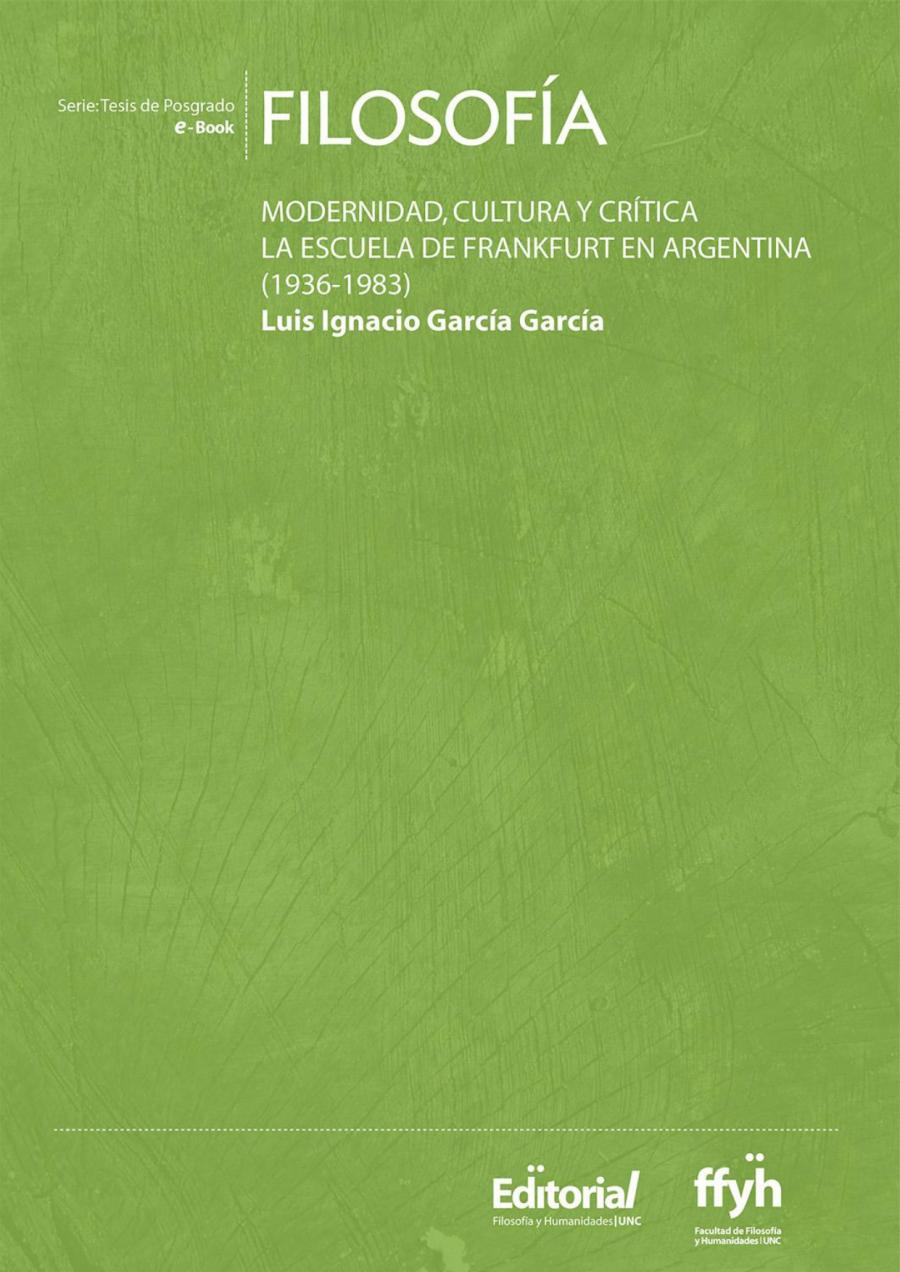Modernidad, cultura y crítica. La escuela de Frankfurt en Argentina (1936-1983)
Palabras clave:
Argentina (1936-1983), Escuela de Frankfurt, marxismo, materialismoSinopsis
El presente trabajo estudia la recepción de la denominada escuela de Frankfurt en la historia intelectual argentina entre los años 1936 y 1983. Con ese objetivo, entrelaza tres registros fundamentales. En primer lugar, una discusión sobre la herencia de la teoría crítica y del
marxismo heterodoxo del siglo XX. El estudio piensa la escuela de Frankfurt no tanto como corpus teórico o doctrinario sino más bien como uno de los ensayos fundamentales de renovación del legado del materialismo histórico en un siglo de revoluciones y totalitarismos. La escuela de Frankfurt comparece ante el prisma de las lecturas argentinas que descomponen toda imagen homogénea de la misma y la disponen más bien como laboratorio múltiple de experimentación para el pensamiento crítico local. En un segundo registro, el trabajo asume una reflexión sobre los dilemas culturales y metodológicos que se suscitan en el abordaje de procesos de traducción cultural o de circulación internacional de las ideas. Para ello, se movilizan un conjunto de estrategias y de herramientas propias de la historia intelectual y de la teoría de la recepción, pero también se revisa una larga tradición ensayística que en toda América Latina ha pensado el problema de las ―ideas fuera de lugar‖, las coacciones tanto como las potencialidades críticas de la producción intelectual en la ―periferia‖. El desarrollo del trabajo constata la imposibilidad de toda teoría receptiva de la ―recepción‖, y nos enfrenta más bien a procesos de activa resignificación de las tradiciones y producciones en cada caso recibidas. El tercer registro del estudio es el efectivo análisis de los distintos momentos de la recepción de los frankfurtianos en nuestro país. Este recorrido, que constituye el cuerpo principal del trabajo, incluye las siguientes estaciones más importantes: la ―estética operatoria‖ de Luis Juan Guerrero, la ―sociología científica‖ de Gino Germani, las traducciones de la colección ―Estudios Alemanes‖ en la editorial Sur, el ensayismo de Héctor Álvarez Murena, la ―nueva izquierda‖ de Juan José Sebreli, la filosofía marxista de Carlos Astrada y Miguel Lombardi, los inicios de los estudios sobre comunicación en Jaime Rest, Enrique Luis Revol y Heriberto Muraro, y, finalmente, las intervenciones sobre literatura y sociedad de Ricardo Piglia, Carlos Altamirano y Beatriz Sarlo. En cada una de estas estaciones, la escuela de Frankfurt muestra aspectos distintos en función de los diversos modos de leerla y actualizarla en diversos momentos, desde distintos marcos de lectura y con intereses divergentes y a veces incluso contrarios. De esta forma, el trabajo, en su conjunto, plantea una apuesta relacional en la que no quedan intocados ni el corpus teórico de los frankfurtianos, siempre modulado en función de las variaciones prismáticas de cada lectura y apropiación singular, ni la historia intelectual argentina, que comparece ante uno de los principales legados del marxismo crítico del siglo XX. El trabajo propone este singular campo de fuerzas como posible laboratorio para indagar las alternativas de una teoría crítica local.

Descargas
Publicado
Categorías
Licencia

Esta obra está bajo una licencia internacional Creative Commons Atribución-NoComercial-CompartirIgual 4.0.



























